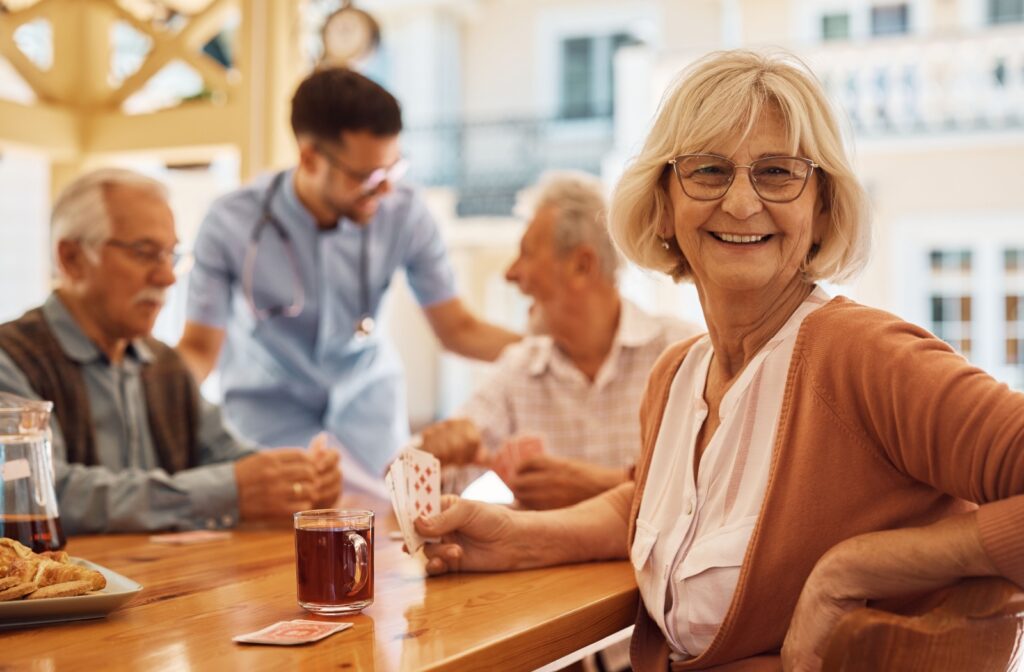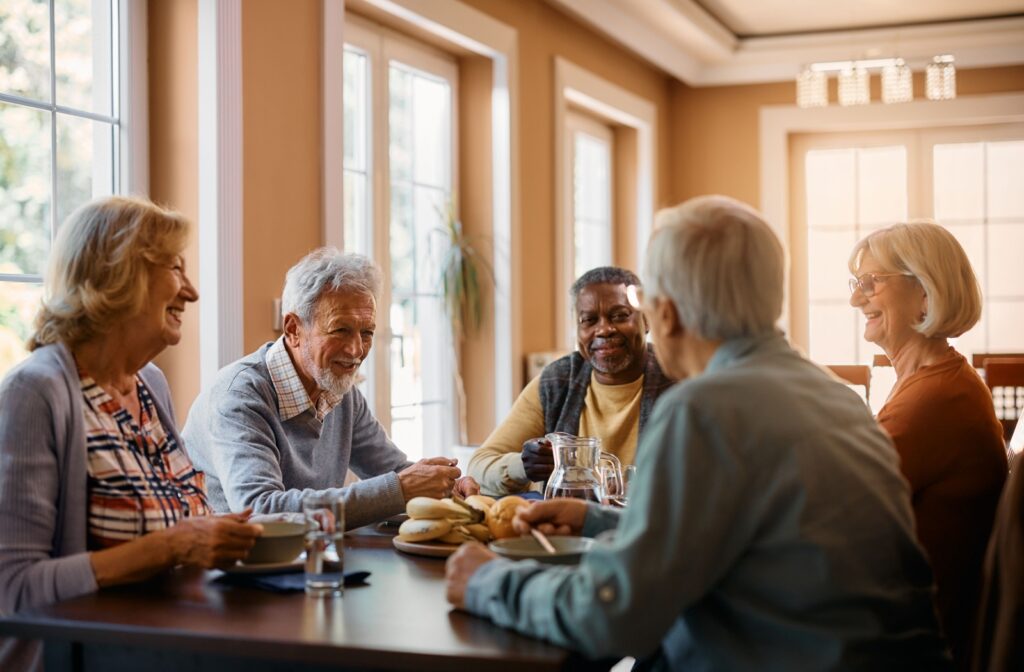The importance of social connections for older adults cannot be overstated. As people age, their social circles tend to shrink due to factors such as retirement, loss of mobility, and the passing of friends and family members. This can lead to feelings of loneliness and isolation, which can have a negative impact on both physical and mental health.
Studies have shown that having strong social connections can have numerous benefits for seniors, including improved cognitive function, reduced risk of depression, and even a longer lifespan.
Reasons for Social Connections
There are many reasons why social connections play a crucial role in keeping seniors healthy.
Reduces Risk of Chronic Diseases
Loneliness and isolation can lead to chronic diseases such as heart disease, hypertension, and diabetes. When seniors have meaningful social interactions with others, they are less likely to develop these conditions. This is because social connections can help reduce stress levels and boost the immune system, making seniors more resilient to illness.
Provides Emotional Support
Seniors may face challenges such as health issues, loss of loved ones, and changes in living situations. Having a strong support network of friends, family, and community members can provide emotional support during these difficult times. It also gives seniors a sense of belonging and purpose, which can improve their overall well-being.
Promotes Physical Activity
Social connections can also motivate seniors to stay physically active. Whether it’s going for walks with friends or participating in group fitness classes, having others to exercise with can make physical activity more enjoyable and sustainable. This can have a positive impact on both physical and mental health.
Encourages Mental Stimulation
When seniors engage in social activities, they are constantly interacting with others and using their cognitive skills. This can help keep the brain sharp and may even delay the onset of conditions such as dementia or Alzheimer’s disease.
Ways to Stay Connected
As we age, it may become more challenging to maintain social connections due to factors such as mobility limitations, living alone, and loss of friends and family. However, there are still many ways for seniors to stay connected and reap the benefits of social interactions.
Join a Club or Group
Joining a club or group that focuses on a shared interest can be a great way for seniors to meet new people and build friendships. This could include book clubs, walking groups, art classes, or volunteer organizations. These activities not only promote social connections but also provide an opportunity for seniors to learn new skills and stay mentally stimulated.
Use Technology
Technology has made it easier than ever for seniors to stay connected with others. Social media platforms such as Facebook and Instagram allow seniors to connect with friends and family members all over the world. Video chat services like Skype or Zoom also provide a way for seniors to have face-to-face interactions with loved ones who may not live nearby. Additionally, there are many online forums and communities specifically for seniors to connect with others and share their experiences.
Attend Community Events
Many cities and towns offer events and activities specifically geared toward seniors. These could include senior center gatherings, community festivals, and cultural events. Attending these types of events not only promotes social connection but also provides an opportunity for seniors to engage with their community and feel a sense of belonging.
Reach Out to Family & Friends
Staying connected with loved ones is crucial for seniors’ mental health. It’s essential to make an effort to reach out to family and friends regularly, whether it be through phone calls, video chats, or in-person visits. Sharing stories and memories with loved ones can help seniors feel less isolated and more connected to their support system.
Volunteer
Volunteering is another excellent way for seniors to stay socially active and make a positive impact in their community. There are many volunteer opportunities specifically designed for older adults, such as mentoring programs or helping out at local charities or schools. Not only does volunteering promote social interaction, but it also provides a sense of purpose and fulfillment.

Fostering Social Connections at Round Lake Senior Living
It’s important for seniors to prioritize and maintain their social connections. Loneliness and isolation can have negative effects on seniors’ physical and mental health, but there are many ways for seniors to stay socially active and connected. By participating in community events, reaching out to loved ones, and volunteering, seniors can continue to lead fulfilling lives surrounded by a supportive network of friends and family.
At Round Lake Senior Living, we understand the value of social connections for seniors and strive to provide a supportive and engaging community for our residents. Through various activities, events, and opportunities for interaction, we promote an active and fulfilling lifestyle for our seniors.
We encourage all seniors to prioritize their social well-being and stay connected with their communities. Feel free to reach out to us to learn more about our senior living options and how we can help you or your loved one maintain a fulfilling and socially active lifestyle.



